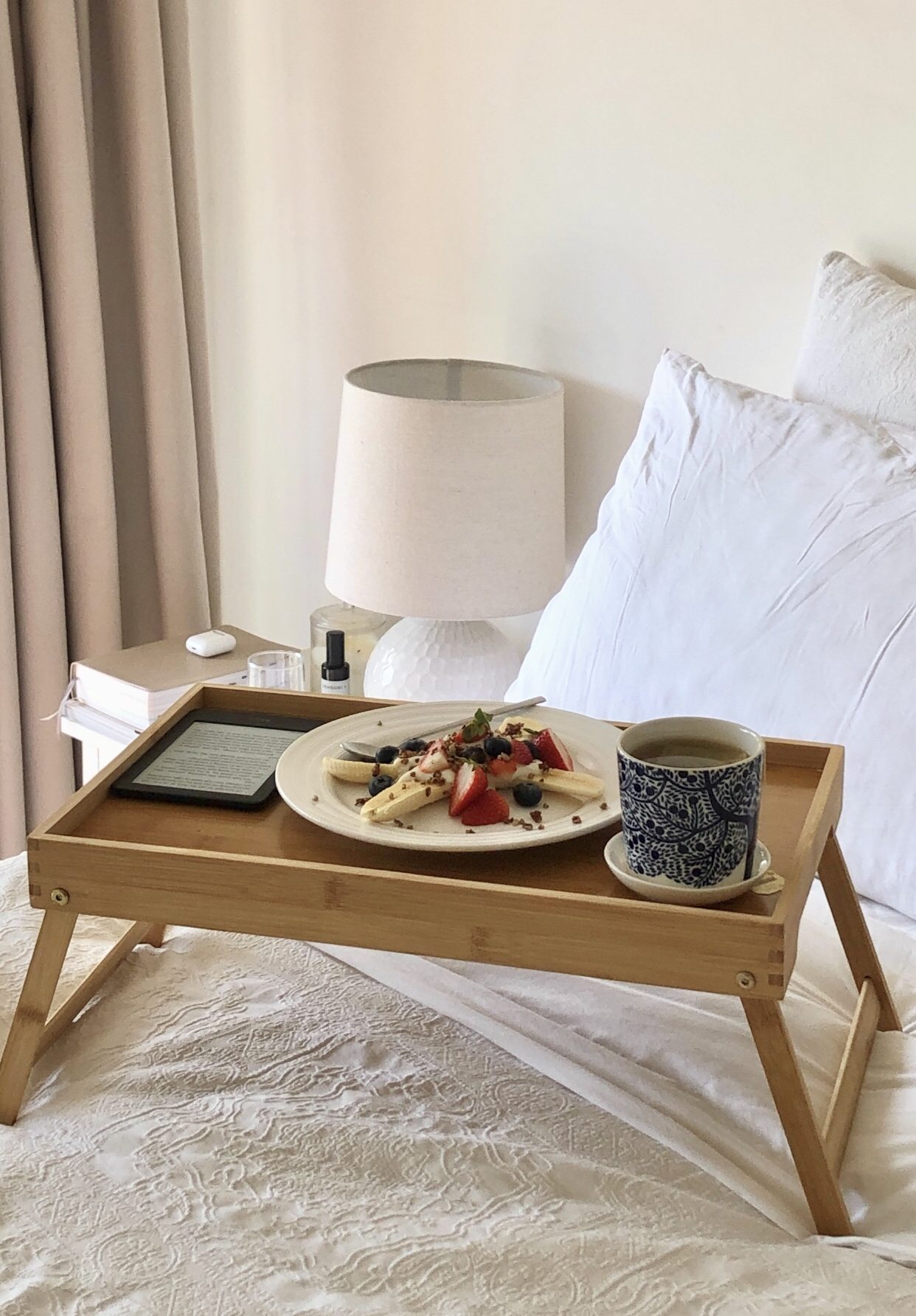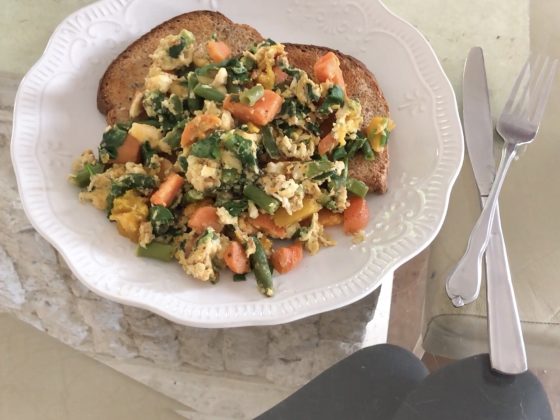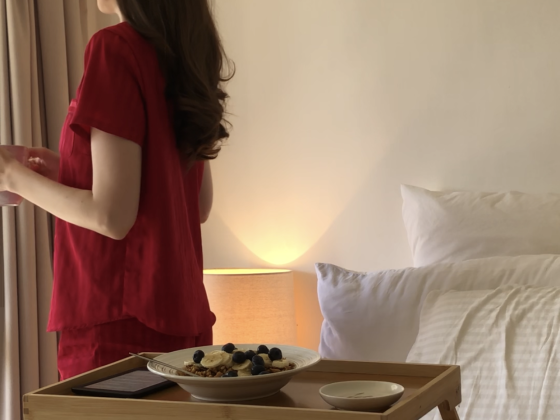
I love all things wellness (clearly), but I think we need to address wellness fatigue. After ten minutes of scrolling on instagram, I saw at least ten new wellness trends, ten viral must-try recipes, and hundreds of differing opinions on what is healthy. It’s a lot.
Wellness has always been known to encompass a well-rounded attainable approach to health. But in recent years, it’s become this elusive concept that’s always just out of reach. Partly thanks to the ever changing wellness trends and the unrelenting pursuit of self-optimisation. And of course, partly thanks to the sheer volume of wellness content (& opinions) we are now taking in every day. Much of it false and misleading, sending us out on wild goose chases.
Perhaps your internal dialogue looks a little something like this when you’re scrolling through #wellness:
- I need to make sure I include x, y, z into my diet if I want to be healthy.
- I need to try this supplement because it will finally cure my gut.
- I need to follow this person’s ‘what I eat in a day’ because they look amazing.
- I need to try out this new workout routine everyone is doing.
- I need to start eating this for breakfast because it’s nutritious… oh wait, this person said it’s inflammatory. Which one is it?!
- I need to cut out x, y, z from my diet because this person said it cleared their skin.
- I need to try out all these viral recipes.
Oh and, I need to clear my schedule to be able to fit all of this in.
Ironically, this bombardment of wellness is taking us away from experiencing true wellness in our lives. So, let’s change that. In today’s post I’m going to share with you some simple tips that can help you overcome wellness fatigue.
The Foundations vs the Add-ons
A simple way to overcome wellness fatigue is to divide all health and wellness content/advice into two groups: the foundations and the add-ons. What are they you ask? Well, the foundations are the science-backed core principles that you need for good health. Hint: you most likely already know what these are! Add-ons, on the other hand, are the wellness tips and trends that tend to dominate social media. They aren’t a necessity for good health, but in some cases can add to it. For example, ‘sleepy girl mocktails’, or specific daily routines.
As you may have already guessed, to achieve good health we need to prioritise the foundations. Let’s take a quick look at some of these:
- Eating a varied diet rich in nutrient-dense wholefoods (I talk more about it in this post). Think vegetables, fruits, wholegrains, legumes, nuts, seeds, as well as quality lean meat and/or meat alternatives and some quality dairy and/or dairy alternatives.
- Building nutritionally balanced meals (I talk all about it in this post)
- Drinking water
- Moving your body (incorporating both cardio and muscle-strengthening activities)
- Resting your body
Within these foundations, you could also add mental and social wellness. For example, staying mentally active, and building healthy friendships.
This gives us a clear path forward to achieve good health, but also filters out the changing trends and misinformation. Once the foundations are set, you can then experiment with any add-ons that fit within your lifestyle.
Seek Reputable Sources
Much of the wellness content you see online is not backed by science and perpetuated by marketing, or well-meaning individuals who have been misguided. Knowing where to find correct information, particularly when it comes to nutrition, can also help to overcome wellness fatigue.
Hopefully it will come as no surprise that Dietitian’s are your best source of nutrition advice. Dietitian’s are nutritionists that have also undergone extensive training in ‘Medical Nutrition Therapy’ and worked across hospital and clinical settings. This is why you should only get medical-related nutrition advice from Dietitians.
Alongside Dietitians, Nutritionists are also an amazing source of general nutrition knowledge and practical healthy living advice. There are also food scientists who do a wonderful job at debunking fear mongering around specific foods.
And of course, wellness influencers can be a great source of encouragement and recipe ideas. However, be mindful of any red flags, including:
- They start providing nutrition advice regarding specific medical conditions.
- They promote cutting out food groups.
- Following them is negatively impacting on your relationship with food.
Consider the Context
When it comes to discerning wellness information, it’s also important to consider the context.
This can be a problem when it comes to social media platforms like instagram and TikTok, because short-form content in it’s very nature lacks context.
For example, someone could see me posting a reel about gluten-free meal ideas over on my other instagram (which has ‘dietitian’ in it’s username) and assume that’s because ‘gluten free’ is healthier. When in fact it’s actually because my page is dedicated to helping people manage coeliac disease and food intolerances.
Two ways to help you gain further context is to read the captions (particularly on IG where the captions are more thorough, compared to TikTok), as well as looking at someone’s bio. Often you can gain an idea on who their target audience is and whether or not their content applies to you.
“Is This Relevant to My Life Right Now?”
Throughout this post we’ve filtered through the wellness information. We’ve address what our focus should be on (the foundations) and we’ve filtered out misinformation as best we can. But there is one more filter I find helpful to consider, and that is, “is this relevant to my life right now?”
Like we discussed earlier, we’re bombarded by wellness information, but not all of it is misinformed. There is a lot of wellness information that is scientifically backed, encouraging and balanced. Here, I find it helpful to look at whether it is relevant to your life right now.
For example, if you start work early in the morning, the ‘morning routine inspo’ reel may not be relevant to your lifestyle. It doesn’t mean ‘your lifestyle is unhealthy’ or ‘you’re not doing enough’, it means you have different schedules. Instead, the ‘healthy on-the-go breakfast ideas’ video could be helpful.
Wellness needs to be realistic to your individual lifestyle.
A Balanced Approach
Wellness fatigue can also come about when we think every minute of our life needs to be optimised to be healthy. But the truth is we’re human beings, not machines.
It’s ok to rest, to enjoy yummy food, to socialise. In fact, most models of wellness include at least six dimensions of health, including physical, mental, emotional, spiritual, social and environmental. True wellness incorporates a well-rounded, balanced approach to health.
And as we know, a balanced approach helps us to sustain a healthy lifestyle for the long-term.
Remember, wellness should make your life richer, not more complicated and tiring. If social media is making you think otherwise, I encourage you to remember the foundations of healthy living, adopt a balanced approach to wellness and be mindful of who you’re following.
I hope these tips help you to feel a little more equipped the next time you decide to go for a scroll.
Talk soon,
Chanté x









1 comment
Noodlemagazine I am truly thankful to the owner of this web site who has shared this fantastic piece of writing at at this place.